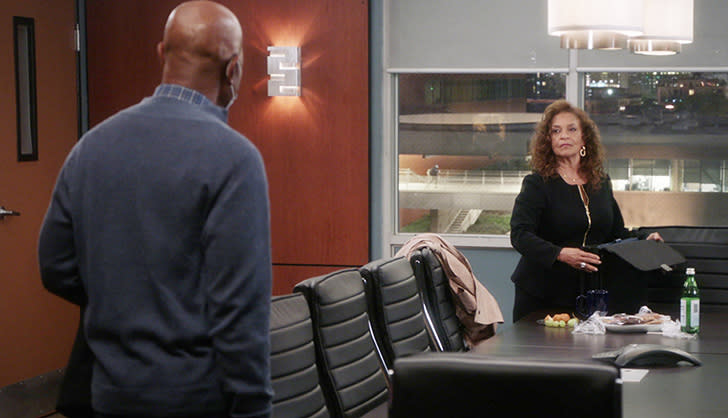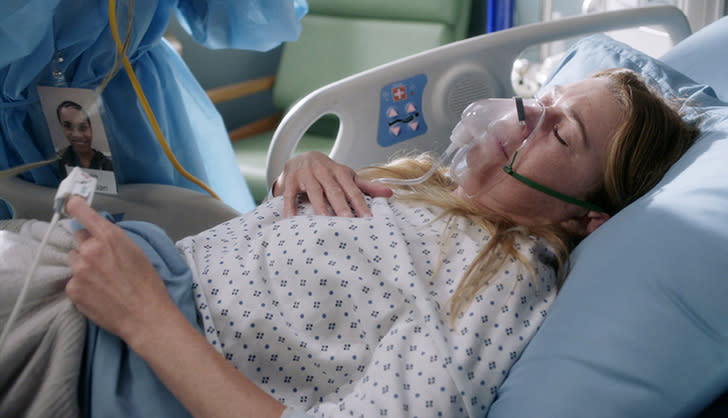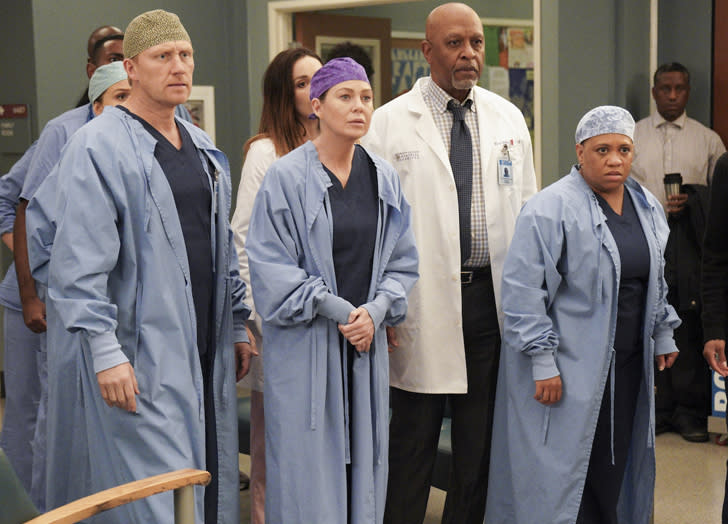Is ‘Grey’s Anatomy’ Accurate? We Asked Medical Experts to Weigh in
Fans are itching for the premiere of Grey’s Anatomy season 20, so they can determine just how impactful Meredith Grey’s (Ellen Pompeo) departure as a series regular will be. Although the show typically premieres in September, the new installment has been delayed due to the ongoing SAG-AFTRA strike.
In the meantime, we’ve been re-watching Grey’s Anatomy (for the billionth time), and we found ourselves asking the same questions. Is the ABC series medically accurate? Are there blatant mistakes? And finally, do doctors really hook up in the hospital’s on-call rooms?
That’s why we turned to not one, but two experts: Dr. Kailey Remien and Dr. Gail Saltz. Not only are they both longtime fans of Grey’s Anatomy, but they also have enough medical knowledge to answer the age-old question: Is Grey’s Anatomy accurate? Here’s what they had to say.
1. Is Grey’s Anatomy Accurate?

ABC
For the most part, yes. As Dr. Remien pointed out, the majority of the cases are medically accurate, but that’s only because the show doesn’t go into very much detail. “As far as medical shows go, Grey’s does a decent job when it comes to the cases,” she explained. “However, they rarely dive into detail about the cases. It’s not even every episode that they dive into a differential diagnosis or why they are heading to the OR. So, when they discuss actual medicine, it can be sound, but they quickly stray.”
Dr. Saltz confirmed this statement and claimed while most cases are based on real procedures, some aspects are dramatized for television. “Some things are accurate. Some things are not,” she told PureWow. “Most terms I have seen used are accurate, but the portrayal of the medical condition or outcome of the medical term is not always accurate.”
2. What Did Grey’s Anatomy Get Right?

ABC
Grey’s Anatomy documents Meredith Grey’s journey from medical student to badass surgeon. Dr. Remien confirmed that “Grey’s does a good job of showing the transition from student to attending. As a surgical intern, you then become a resident and residency (including intern year) is typically five years. Some programs may be longer if they require a certain length of research. After residency, if a doctor wishes to specialize, they then go to fellowship which can be anywhere from one more to three more years. After fellowship (or residency if no fellowship was done) you are then, finally, an attending.”
She continued, “When Grey was an intern, how tired she was and never leaving the hospital was slightly dramatized—but intern year is brutal. It’s supposedly better now due to some duty hour restrictions, but it’s the largest learning curve any of us go through.”
While the hierarchy is accurately depicted, Dr. Saltz explained that the doctor-student relationship isn’t always so forward. “The empowerment of students to do procedures they don’t know how to do but are winging it is not realistic,” she added.
3. What Did Grey’s Anatomy Get Wrong?

ABC
With 19 seasons under its belt, there are bound to be inaccuracies. So, where do we begin? For one, Grey’s Anatomy doesn’t accurately portray the administrative side of the job, according to Dr. Saltz. “The amount of paperwork and administrative work everyone has to do in a hospital these days is not accurately portrayed, because it is boring,” she said.
Dr. Remien admitted that her “personal pet peeve” is when the actors don’t use the instruments properly. “The thing that drives me crazy while I watch the show is when they put their stethoscope on backwards!” she explained. “The ear tips should angle into the ear canal. The actors tend to put theirs on so that the ear tips angle back onto their outer ear. There is no way they can hear anything, let alone find some obscure murmur.”
Oh, and how could we forget about scrubbing in, which is a crucial part of the pre-op process? “Another blatant error is they tend to quickly break scrub right after they finish,” Dr. Remien said. “After you scrub, you’re not supposed to drop your hands below your waist—which they tend not to do—but their hands will be held right in front of their mouth. As we have all learned from COVID, lots of infections are spread through respiratory droplets and your hands should not be anywhere near your face after you scrub.”
4. Do Doctors Actually Hook Up in the On-Call Rooms?

ABC
You know how the doctors on Grey’s Anatomy are constantly sneaking off to hook up in the on-call rooms? Well, that’s not how hospitals actually operate.
“Historically, hookups did happen in on-call rooms occasionally, but the show makes it look like that’s what goes on all the time,” Dr. Saltz said. “Honestly, no doctor has that kind of time available to hook up even if they wanted to while they are on-call!”
Dr. Remien also pointed out that cleanliness is a factor, adding, “First off, hospitals are disgusting. The cleaning staff does the best they can, and I’m thankful for them, but the nastiest diseases, strongest bacteria and strangest fungi are in the hospital. It is not somewhere that I would like to take my clothes off.”
She continued, “Secondly, it’s wildly inappropriate to have sex in the hospital and medical professionals (especially residents) are under a microscope. There is slim chance that, as a resident, someone could go missing long enough to get busy without someone wondering where you were. Maybe once, if you really tried, but definitely not as often as they do on the show.”
You have some serious explaining to do, Dr. Grey
